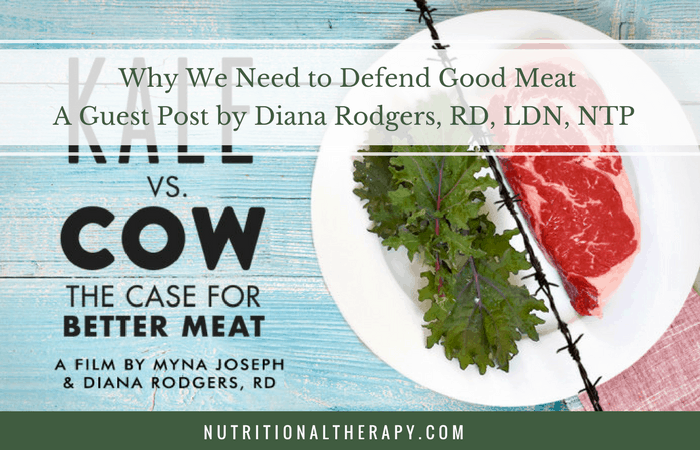Blog
Why We Need to Defend Good Meat

All over the media, we’re hearing that we need to reduce our intake of red meat. It’s vilified for being unhealthy, bad for the environment and unethical to eat.
What about the fact that humans have been thriving on red meat for thousands of years? And what if environmentally, cattle could be one of our best solutions to climate change? From a least harm perspective, what if eating large ruminants was actually the most ethical choice?
I get why people feel that eating meat is wrong, but I’d like to ask some more questions. Is it really causing less harm to eat only plants? Did no death happen for your bread or tofu? Is the farming of plants inherently “cleaner” than animal production? Is a diet void of meat really the healthiest way to live?
There’s a big problem with assuming that plants are inherently “better” than animals. Most people don’t understand sustainable food production. What about HOW those plants were grown? Are we wondering what chemicals and fossil fuels were used, what habitat was destroyed to make room for that field, whose water was diverted for irrigation? What about how the field workers were treated?
When tractors plow, when we spray pesticides, herbicides, and apply synthetic fertilizers to the land, is this causing no harm? When the harvest happens, how many critters die when the machines roll in? Is plant farming always harmless? And how do we replenish the nutrients that the plants took from the soil?
The fact is, no truly healthy ecosystem in nature is void of animals. Our industrial agricultural system is ruining our soil. Of course factory farming of animals is also wrong, but there are other ways of animal production. Environmentally, well-managed cattle and other grazing animals perform an important service. They help maintain soil health, can increase the water holding capacity of the land, and their impact can actually restore brittle landscapes. Not only that, but grazing animals can sequester carbon. More science is coming out about the benefits of well-managed animals and it’s time to get the word out!
In nature, all healthy ecosystems have a large variety of plants AND animals living together, interdependently. Mono crop agriculture is not natural. It’s not regenerative. And most of the agricultural land on the planet is not suitable to growing crops, yet a large majority of our land can support grazing.
Grazing animals can convert plants we can’t eat (grass) on land we can’t crop (pasture) into one of the most perfect foods for humans. When managed well, cattle, bison, sheep and other ruminants can actually improve land. Their manure isn’t waste, but vital fertilizer that inoculates soil with healthy microbes needed to grow better grass. Nature is a cycle and humans are part of the food web, not on top of it.
Protein is the building block of our entire structure. Without it, we couldn’t exist. Red meat is an excellent source of not only high quality protein, but also B12 and iron, the most common nutrient deficiencies worldwide. Also, the fats in red meat are critical for brain development, to help us maintain healthy cell walls, and are actually a great source of energy. Many traditional populations rely quite heavily on red meat with vibrant health!
Of course, the decision to avoid eating meat largely comes from an emotional place, because of wanting to do the least amount of harm through our dietary choices. Why eat animals when we have plenty of other food? Why should we kill other animals in order to satisfy our palates? But are humans really better off without animals in our diet, on our grasslands, and helping to fertilize our crops? What diet truly causes the least harm and increases biodiversity while proving nutrient dense food?
These topics and more are incredibly important to me and I plan on diving deeper into them in my new film, Kale vs. Cow: The Case for Better Meat. I’ll be featuring health experts, food producers and consumers to examine our relationship to the animals we eat, and show how eliminating animals from our food system could cause more harm than good. As someone who has spent over 16 years living on a working farm, has studied real food nutrition, and runs a busy clinical practice, I’m taking on this important project.
I’m looking for your help. In order to show the “other side” of meat, I’m running a crowdfunding campaign to raise the funds. I’m reaching out to you, my fellow colleagues from NTA, to help me get this off the ground and to reach out to your networks and let them know about this important project. Any contribution, no matter how small, is incredibly appreciated.
We’ve already had some great success and the backing of the Weston A. Price Foundation, Slow Foods, The Savory Institute, The Healthy Fats Coalition companies like Applegate, Butcher Box, Thrive Market, Vital Choice Seafood, and the support of notable experts like Robb Wolf, Chris Kresser, Liz Wolfe, Chris Masterjohn, Sarah Ballentyne, Nina Teicholz, Dr. Drew Ramsey, Dr. David Perlmutter, Gary Taubes, Nicolette Hahn Niman, Joel Salatin and Lierre Keith.
We have begun shooting and will continue to film as much as we can afford, but in order to complete the project, I could really use your help. Please consider pledging your support and telling your network about it. The real food community needs a well-made film that fully addresses the nutritional, environmental and ethical case for meat without a dietary dogma, made by someone who understands nutrition AND food production. For more information, please visit www.sustainabledish.com/film.
A guest post by Diana Rodgers, RD, LDN, NTP, author of The Homegrown Paleo Cookbook, Paleo Lunches and Breakfasts on the Go, host of The Sustainable Dish Podcast and owner of Sustainabledish.com.
A guest post by Diana Rodgers, RD, LDN, NTP, author of The Homegrown Paleo Cookbook, Paleo Lunches and Breakfasts on the Go, host of The Sustainable Dish Podcast and owner of Sustainabledish.com.


0 Comments